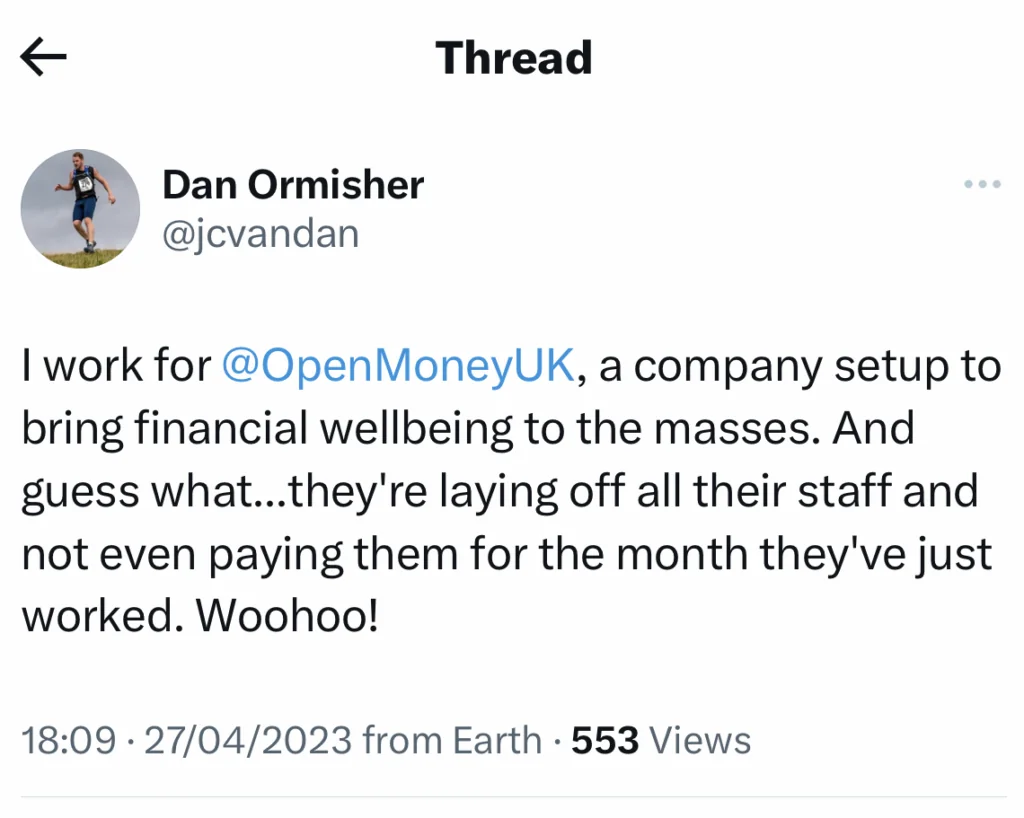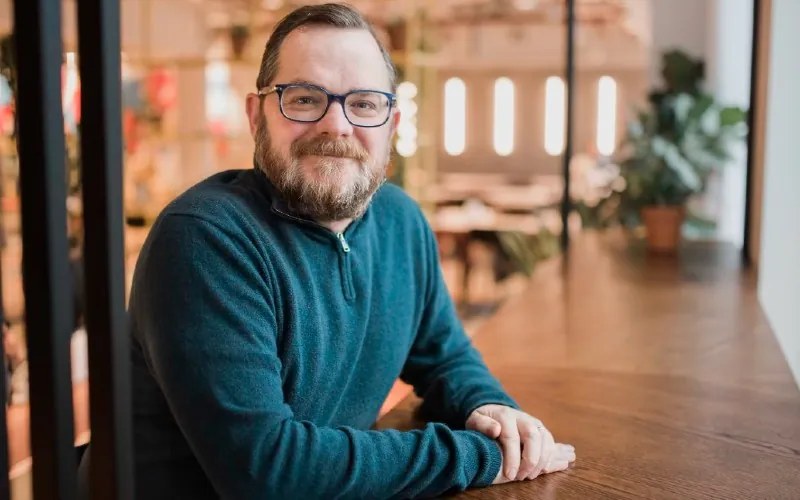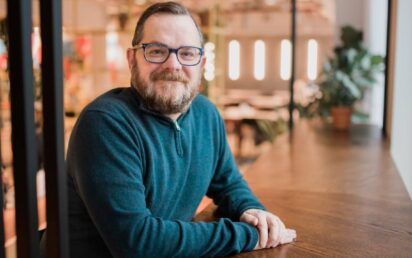If things had worked out differently, OpenMoney could have been mentioned in the same breath as FinTech giants like Revolut.
Launched in 2015, its mission was simple: make financial advice accessible and affordable to everyone.
Duncan Cameron, co-founder of MoneySuperMarket, liked the idea so much he invested an estimated £30m+ of his fortune in the startup.
It was a great idea – but fast forward eight years and those dreams lay in tatters.
A consultation by the new owners will decide how many of the current workforce, which peaked at 92, will still have jobs at the end of the process, but redundancies are inevitable.
The reality is that a FinTech set up to offer financial advice to the public should have done a lot more to get its own financial house in order.
The truth is that after eight years, OpenMoney was burning cash at a rate of £600,000 a month and generating less than £1 million a year in revenue.
They were the sort of numbers that convinced Cameron to cease all funding from the end of March 2023 and spark a desperate search for a buyer.
One of the first things turnaround specialists Will Mallard and Patrick Leahy did when they bought the business for a nominal sum was to put the loss-making parent company – OpenMoney Limited – into a Company Voluntary Arrangement (CVA) and embark on a major restructure.
One insider told BusinessCloud: “Some of the costs that were allowed to build up were crazy for a business that size.”
Eyebrows were raised at some of the hefty salaries paid to several senior managers, extended contracts and the decision to move everyone to a 4.5-day working week at a time when they were trying to find a buyer.
Hardly surprising then that angry members of staff like Dan Ormisher, a principal engineer at the FinTech, took to Twitter in response to the events of last week.
“I work for OpenMoneyUK, a company set up to bring financial wellbeing to the masses,” he tweeted. “And guess what? They’re laying off their staff and not even paying them for the month they’ve just worked. Woohoo!”

So where did it all go wrong?
To understand that we need to go back to the beginning in 2015 when Anthony Morrow had the idea for the business.
Between 2006-15 Morrow worked as a founding partner of Tatton Asset Management, which subsequently floated in 2017. “In 2015 I decided I wanted to create a business that helped people who didn’t understand money that well to make better decisions on what to do,” recalled Morrow.
The startup – originally called evestor – subsequently rebranded as OpenMoney.
Morrow went into business with long-term friend Duncan Cameron, who’d sold his stake in MoneySupermarket in 2007 for a reported £162m.
Cameron had 52% of the startup and Morrow 48%.
“Duncan definitely put in the lion’s share of the money,” admitted Morrow. “I would say he’s invested more than £30m into the business.”
OpenMoney faced two big problems. The first was getting new customers, which was expensive. The second was its huge cost base, which far exceeded its revenue.
As well as the parent company two subsidiary businesses – OpenMoney Adviser Services and WorkLife by OpenMoney – were launched.
They were the customer-facing, cash-generative side of the business and weren’t saddled with the same cost as the parent company OpenMoney Ltd.
Headquartered at Manchester’s ABC Building in Quay Street, Morrow was CEO while Cameron was a hands-off investor.
“Duncan had no day-to-day involvement,” recalled Morrow. “He’d come in every now and again and meet the developer team. He took a real interest in the OpenMoney app. It was a personal finance app that would enable people to see all their accounts in one place and we’d give them budgeting advice.”
OpenMoney grew customer numbers to around 20,000 and had £145m of assets under management – but the business continued to burn cash at an alarming rate.
Accounts filed at Companies House show the FinTech lost £9.3m before taxation in 2021 against revenues of £593k, compared to £7.6m and £582k respectively in 2020.
By 2021, the two co-founders wanted to take the business in different directions.
Cameron wanted to focus on the app, which he thought had the potential to compete with Revolut, while Morrow wanted to “stick to our knitting”.
“My view was it was a really concentrated market,” explained Morrow. “There was no real clear view on how we were going to make any money out of it and it was incredibly expensive for us to continue to run compared to my preference to continue with the OpenMoney investment service and the workplace business and look to generate revenues through partnerships.
“I was conscious that if we were going to go out and raise investment we needed to get our revenues growing.
“The management team backed Duncan so I was done. It was awful. OpenMoney was my business. I’d fronted it up and brought all the team along.
“I could see the problem. We had his big cost base because we were building all this stuff without any revenue. At some point it was going to give. In 2021 we parted company and I did other stuff.”
Despite the change of direction, OpenMoney continued to lose money and in September 2022 Cameron announced he wasn’t prepared to keep investing money into growing the business.
Morrow recalled: “At the end of November he said to me ‘you’re going to need to find another investor for OpenMoney because I don’t want to put any more money in’.”
No timeline was given but Morrow re-joined in January 2023 as NED to try and find investment.
“All the structural problems that were red lines to me in 2021 were still there,” said Morrow.
Could the management team at OpenMoney have done more? Clearly the high salaries paid to senior managers and the lack of any major cost-cutting measures couldn’t have helped in the search for a buyer.
FinTech 50 – UK’s most innovative financial technology creators for 2022
Morrow had serious discussions with one company about a full acquisition but it fell down in February due to the complexity of the deal and the restructuring costs.
Other serious conversations were had, but the stumbling block was always the combination of cost base and lack of revenue growth.
OpenMoney needed to undergo a major restructure but the business simply didn’t have the money to pay for it.
“At the end of March 2023 Duncan turned round and said ‘I’m not going to put any more money in full stop’,” said Morrow.
“That really put the business in a tough place. The business had always been funded by Duncan on a monthly basis.
“At the end of the month he’d put some money in and that would pay the bills for the next month. There was no financial resilience and very little buffer.
“When he made the decision not to put any more money in you’re literally talking weeks of runway.
“Our options were to either put the whole business into administration or find some fire-sale buyers of the subsidiaries.
“There was interest in both subsidiaries but we simply didn’t have the time to move at the pace that corporate buyers move.”
It was then that talks began with turnaround specialists Will Mallard and Patrick Leahy, who run a financial wellness company called Elva.
In the end the pair bought everything for a nominal sum.
As part of the deal Cameron wrote-off loans that he was owed by the business, which ran into the millions.
Everyone knew that major restructuring was unavoidable.
After a slight delay getting Cameron to sign the contract, it looked like everything was completed by Tuesday April 25th .
As part of the deal, Morrow left the board and Mallard and Leahy issued a statement outlining the size of the job ahead.
It said: “OpenMoney Limited is to enter a period of essential restructuring following its majority sale to financial well-being entrepreneurs Will Mallard and Patrick Leahy earlier this week.
“The restructuring proposals, once agreed, will likely involve a number of operational redundancies after consultation.
“This is deemed necessary in order to ensure the successful and sustainable future of the business and its client facing operations – OpenMoney Adviser Services and WorkLife by OpenMoney.
“Sadly, as a result of the seriousness of the situation, payment of salaries for a number of members of staff across the business has been delayed pending legal and professional advice.
“The pair bought the business with the express intention to grow it. The proposed restructure, while difficult because of the impact on those members of staff whose roles will be made redundant, is essential if the business is to fulfil its potential for stellar growth.
“It is important to stress that there is no impact to clients as a result of the proposed changes.
“Founders Duncan Cameron and Anthony Morrow will continue to retain minority holdings in the business.”
Put simply, Mallard and Leahy want to focus on the advice side of the business and say they’re genuinely excited about embedding financial wellbeing into the workplace.
So where are we now?
Morrow is in reflective mood but admits it’s the failure to pay staff that upsets him.
“The date Duncan pulled the funding is disappointing because it left me with nowhere to go in terms of continuing to sort stuff out,” he said.
“We had made great progress with partnerships that would generate revenue in the medium/long-term but obviously we were still struggling with costs.
“OpenMoney remains a great business that’s been badly run and as a co-founder I accept my share of the blame. We were too reliant on Duncan’s money and I should have got external investment earlier.”
If there is a silver lining it’s that the new owners say there is a future for OpenMoney Adviser Services and WorkLife by OpenMoney.
They insist that the outstanding salaries will be paid as the company embarks on a consultation but warn redundancies are inevitable.
The irony is that a FinTech set up to offer financial advice failed because it didn’t get its own finances in order.


